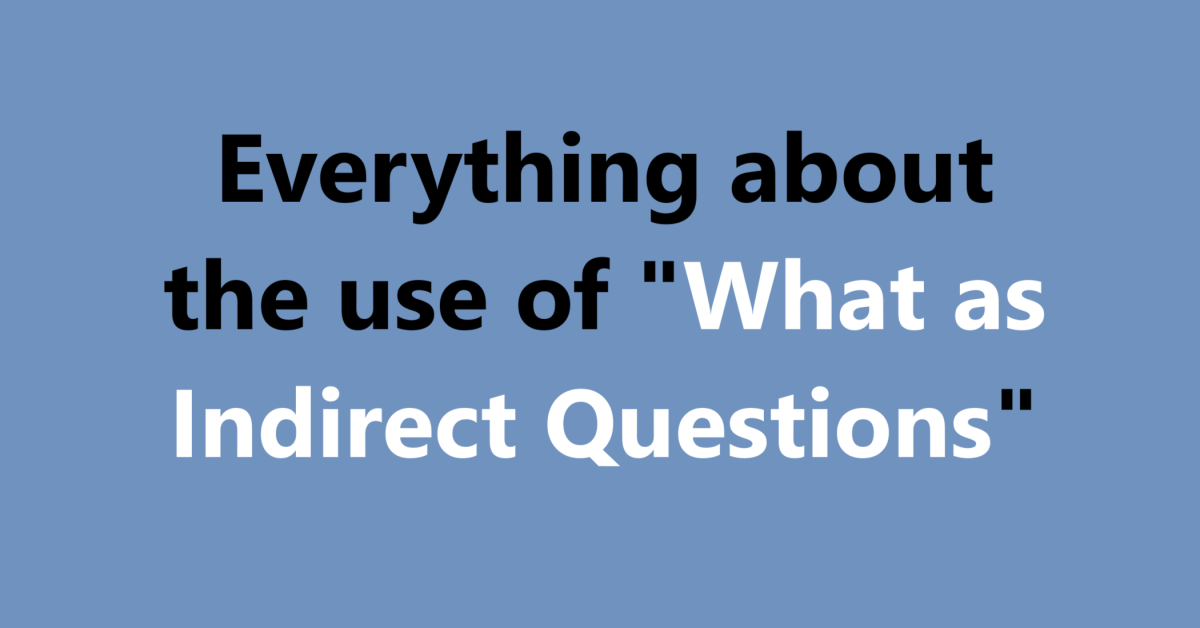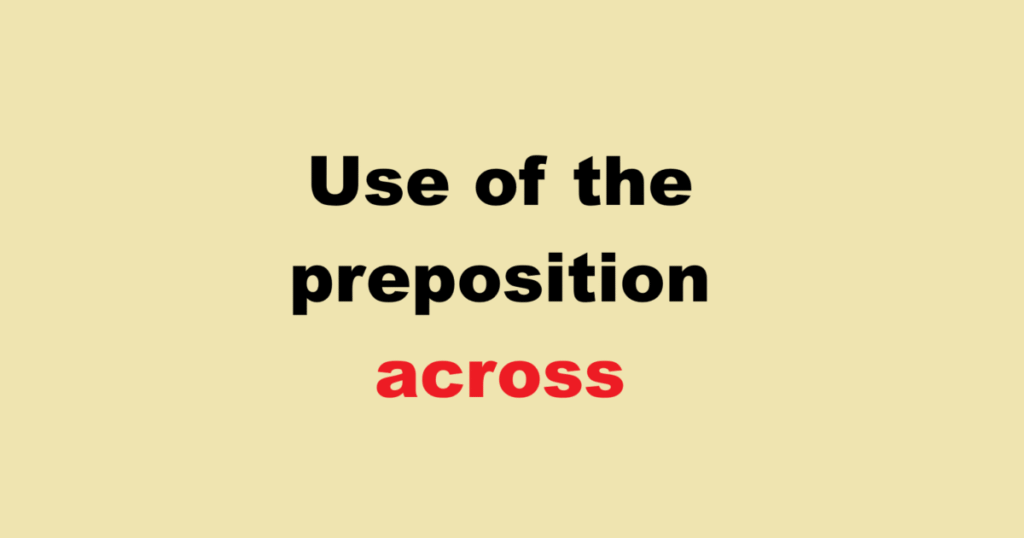Using “what” in indirect questions is a key component of English grammar that allows speakers to express inquiries in a more nuanced and polite manner compared to direct questions. Here’s a comprehensive overview:
Definition
An indirect question does not ask for information directly but implies a question within a statement or another question. Using “what” in this context helps convey the subject matter of the inquiry.
Structure of Indirect Questions with “What”
- Basic Structure
- When forming an indirect question with “what,” the resulting structure typically contains a statement followed by the clause introduced by “what.”
- Example: I wonder what he is doing.
- Integrating “What” into Statements
- Indirect questions can often be embedded within declarative sentences, often showing curiosity or uncertainty.
- Example: Can you tell me what time the meeting starts?
- Subject-Verb Order
- In indirect questions, the subject usually precedes the verb, unlike in direct questions where the order is inverted.
- Example: I’d like to know what you think about this matter. (Not: What you think about this matter?)
Common Uses
- Making Requests More Polite
- Indirect questions using “what” soften requests and make them sound more polite or formal.
- Example: I’d appreciate if you could tell me what you need.
- Expressing Curiosity
- Indirect questions convey genuine curiosity about ideas or information.
- Example: I’m not sure what he meant by that comment.
- Reporting Questions
- When rephrasing a direct question into a statement.
- Direct: What are you doing?
- Indirect: She asked what I was doing.
Common Patterns
- Using “What” with Various Verbs
- Indirect questions can follow a range of verbs, including “ask,” “wonder,” “know,” “see,” and “tell.”
- Examples:
- I wonder what will happen next.
- Do you know what she said?
- Including Additional Information
- More complex sentences can include various clauses.
- Example: Can you explain what the project involves and how I can contribute?
Differences from Direct Questions
- Direct Questions: Typically start with the question word and often invert the subject and verb.
- Example: What do you want?
- Indirect Questions: Integrate the question into a statement without inversion.
- Example: I’d like to know what you want.
Common Errors
- Incorrect Word Order
- Avoid confusing the word order between direct and indirect questions.
- Incorrect: I want to know what is your favorite color.
- Correct: I want to know what your favorite color is.
- Improper Use of Punctuation
- Indirect questions do not use question marks at the end unless the entire sentence is a question.
- Example: I wonder what the answer is. (Not: I wonder what the answer is?)
Tone and Context
- The tone in which “what” is used in indirect questions can also convey subtle meanings. A curious tone enhances the inquiry’s warmth, while a flat or abrupt tone may sound less engaging.
Questions and Answers on “What” as Indirect Questions
Here are 40 questions using “what” as indirect questions, along with their responses:
- Question: I wonder what she is thinking about.
Answer: I think she’s worried about the upcoming exam. - Question: Can you tell me what time the meeting starts?
Answer: The meeting starts at 10 AM. - Question: Do you know what he said during the presentation?
Answer: Yes, he mentioned the importance of teamwork. - Question: I’m curious what their plans are for the weekend.
Answer: I heard they are going hiking. - Question: Could you explain what you meant by that comment?
Answer: I meant that we need to improve our communication. - Question: Can you guess what I found in the attic?
Answer: Was it an old photo album? - Question: I want to know what you think about the new policy.
Answer: I believe it could benefit the team. - Question: He asked me what I wanted for my birthday.
Answer: I told him I would love a new book. - Question: I’m trying to figure out what caused the delay.
Answer: It seems like there was a traffic jam. - Question: Can anyone tell me what the main topic is?
Answer: The main topic is climate change. - Question: I never understood what she was referring to.
Answer: She was talking about the new project timeline. - Question: Do you have any idea what he really thinks?
Answer: I think he is supportive of the idea but hesitant to share. - Question: I’d like to know what they discussed in the meeting.
Answer: They talked about the budget and upcoming deadlines. - Question: Can you remind me what our deadline is?
Answer: The deadline is next Friday. - Question: She was wondering what kind of cake you’d prefer.
Answer: I prefer chocolate cake over vanilla. - Question: I’m unsure what needs to be done for the project.
Answer: We need to create a timeline and delegate tasks. - Question: He told me what he expected from us during the project.
Answer: He expects us to meet our milestones on time. - Question: I’d appreciate it if you could tell me what the schedule looks like.
Answer: The schedule is packed from 9 to 5 with meetings. - Question: Let me know what you decide about the trip.
Answer: I’ll decide by the end of the week. - Question: She asked what I think about the proposal.
Answer: I believe it has a lot of potential. - Question: I wonder what it feels like to travel to space.
Answer: It probably feels exhilarating but also terrifying. - Question: Can you tell me what your favorite book is?
Answer: My favorite book is “To Kill a Mockingbird.” - Question: Do you know what they plan to do next?
Answer: I think they are launching a new marketing campaign. - Question: I’m interested in what you learned from the workshop.
Answer: I learned several new techniques for better communication. - Question: Can you explain to me what the experiment is testing?
Answer: The experiment is testing the effects of temperature on reactions. - Question: I’d like to know what the results of the survey were.
Answer: The results showed that most employees favor remote work. - Question: Have you heard what happened at the event last night?
Answer: Yes, they raised a lot of money for charity. - Question: I’m not sure what he meant when he said that.
Answer: I believe he was suggesting we work more collaboratively. - Question: Do you have any knowledge about what they’re doing later?
Answer: I heard they’re planning a team-building activity. - Question: I want to find out what requirements we need to meet.
Answer: We need to submit our reports by next Tuesday. - Question: She was curious what happened after the show.
Answer: After the show, there was a Q&A session with the cast. - Question: Can you please let me know what your decision will be?
Answer: I’ll let you know by tomorrow afternoon. - Question: I’d love to hear what your thoughts are on the matter.
Answer: I think we should proceed cautiously. - Question: Could you clarify what you’re looking for in that report?
Answer: I’m looking for a detailed analysis of our sales data. - Question: I’ve been thinking about what might happen next.
Answer: It might depend on the outcome of the meeting tomorrow. - Question: What did you say he was planning to do about it?
Answer: He said he would reach out to the team for input. - Question: I want to know what skills they are looking for in candidates.
Answer: They are looking for strong communication and teamwork skills. - Question: Do you know what the rules are regarding the competition?
Answer: Yes, the rules include no outside assistance during the event. - Question: He inquired what the best course of action would be.
Answer: I suggested focusing on our key priorities first. - Question: I wonder what it would be like to live in a different country.
Answer: It would probably be a mix of exciting challenges and culture shock.
FAQs about “What” as Indirect Questions
Here are some frequently asked questions (FAQs) about the use of “what” in indirect questions, along with their answers:
- What is an indirect question?
- An indirect question is a statement that implies a question without directly asking for information. It typically includes a phrase that introduces the inquiry and follows the standard subject-verb order.
- How do I structure an indirect question using “what”?
- The structure usually involves a main clause followed by a “what” clause. For example: “I wonder what you think about the project.”
- What verbs can I use with “what” in indirect questions?
- You can use various verbs, such as “ask,” “wonder,” “know,” “see,” and “tell.”
- Example: She asked what time the event starts.
- How does the structure of an indirect question differ from a direct question?
- In direct questions, the subject and verb are inverted, while in indirect questions, the subject precedes the verb.
- Direct: What is your name?
- Indirect: Can you tell me what your name is?
- Should I use a question mark for indirect questions?
- Generally, indirect questions do not require a question mark unless the entire sentence is a question.
- Example: I want to know what you are doing.
- How can indirect questions make requests more polite?
- Using indirect questions with “what” softens requests by framing them as inquiries rather than commands.
- Example: Could you tell me what you need? (vs. Tell me what you need.)
- Can “what” appear in indirect questions in negative contexts?
- Yes, “what” can be used in negative contexts within indirect questions.
- Example: I don’t know what he said.
- Are there common mistakes to avoid when using “what” in indirect questions?
- Yes, common mistakes include using incorrect word order or using a question mark unnecessarily.
- Incorrect: I would like to know what is your favorite book.
- Correct: I would like to know what your favorite book is.
- Can I use “what” to report someone else’s question?
- Yes, “what” can be used to report another person’s question in an indirect format.
- Example: She asked what I wanted for my birthday.
- How does the tone affect the meaning of “what” in indirect questions?
- Tone can greatly influence how the indirect question is perceived. A warm and curious tone invites a response, while a flat tone may seem disinterested or abrupt.
- Example: “I’m curious what you think” (warm tone) vs. “I’m curious what you think” (flat tone).
Conclusion
Using “what” in indirect questions allows for polite inquiry and subtler communication. Mastering this usage helps facilitate smoother conversations and shows consideration for the listener.

